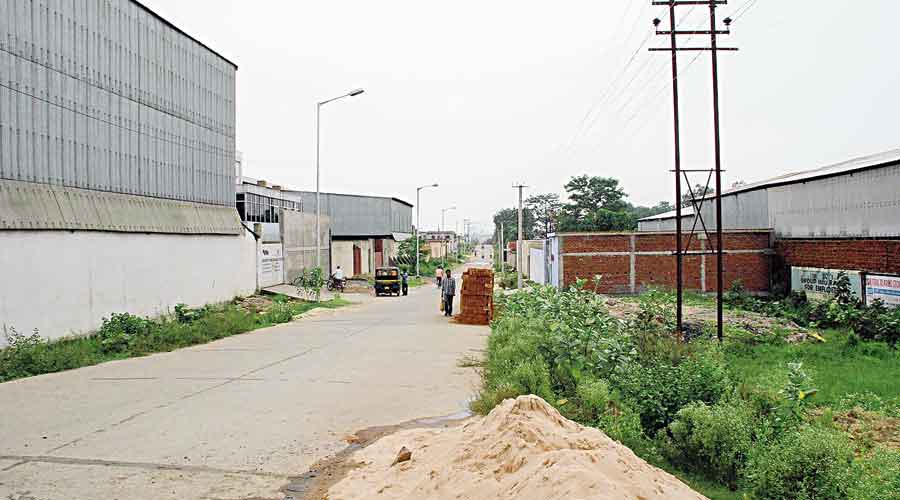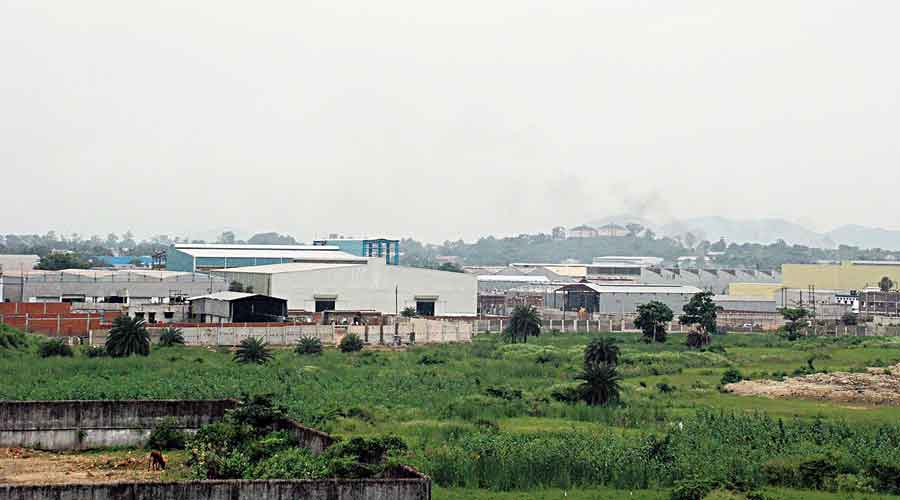The Jharkhand Industrial and Investment Promotion Policy 2021, which was cleared by the state cabinet on Tuesday, will focus on 15 specific priority sectors.
Of these 15, seven are high-priority or focus sectors — textile and apparels, automobile, auto components and electric vehicles, agro food processing, meat processing industries, pharmaceuticals and electronics system design and manufacturing (ESDM).
The remaining eight are priority sectors — start-up and incubation centres, education and technical institutes, healthcare, tourism, IT and ITeS (information technology-enabled services), breweries and distilleries, renewable energy and high and medium engineering.
The JIPP, which will replace the 2016 Industrial Policy of the erstwhile Raghubar Das-led BJP government, also envisages setting up of industrial parks under government, private, joint venture or PPP (public-private partnership) mode in apparel fibre (textile park), IT and software technology park (STPI), gems and jewellery park, biotech and herbs park, chemical and pharmaceutical park, food processing and meat processing park, automobile vendor and ancillary industries park, ceramic park, plastic park, knowledge park and film city.

“The JIPP will be in effect for five years. Through this policy, the government aims to fetch investments worth Rs 1 lakh crore in the state and provide employment to 5 lakh people. The state government will provide subsidy upto Rs 50 crore and additional subsidy of 5 per cent for Scheduled Castes and Scheduled Tribes, women and differently abled,” said chief minister Hemant Soren during a review meeting of the industry department in Ranchi on Friday.
The new policy, a copy of which is available with The Telegraph, admits the Covid-19 pandemic has adversely affected the economy and development of the state due to disruptions in supply chains and a crash in overall demand.
“The major industries of the state including construction, mining, tourism, automobile and light/heavy engineering were amongst the worst hit leading to a crash in exports from the state. The manufacturing and service industry needs to be revived and with this aim, the policy has been revised to provide investors with regulatory support. To rejuvenate the existing rural industries including sericulture, handloom, handicraft, khadi, textile, etc, it is envisaged to assist them in modernisation/technological upgradation and provide necessary common facilities, backward and forward linkages including product design, marketing support, etc, to make them globally competitive. The Government realises that export units in the state need to be modernised by adopting the latest technologies, undertaking skill upgradation,” states the policy mission.
The policy envisages focus on industries with export potential and to encourage and motivate such industries for increasing the volume of exports. It will also focus on export items manufactured from 100 per cent indigenous inputs normally done by the MSME (micro, small and medium enterprises) sector and to establish linkages between OEMs (original equipment manufacturers) and MSME/ancillary industries.
It will provide a simple, proactive, and supportive institutional mechanism for the rapid growth across sectors and promote employment generation in industrial and services sectors by providing facilitation under the Industrial and Investment Promotion Policy, MSME Act, 2006, and other policy interventions.
The policy also outlined technology and skill upgradation in the traditional sectors like mineral-based products, handicrafts, handlooms, agriculture and processed food products to enhance value addition and quality competitiveness. The policy also aims to develop Jharkhand as a textile hub.
“There has been phenomenal growth in the sericulture sector and the state has the highest production of tasar silk in India. Jharkhand primarily exports tasar silk to the US, the UK, Germany, France, Turkey, Japan, Australia, Sweden and Switzerland. In addition to silk weaving, the State has taken adequate measures for the revival of cotton wool weaving. The Government of Jharkhand is committed to upgrade the facilities in Industrial Training Institutes for apparel production. An autonomous institute of quality apparel training will be set up on its own or in joint venture/collaboration with multiple agencies/institutes,” states the policy outline.
The policy aims to notify all textile and apparel parks as public utility services.
Meanwhile, Soren during the review meeting on Friday stressed on the constitution of an investment promotion board, making an action plan for execution of one district one product (ODOP) plan, investment in industrial parks and forming of a MIS (management information system) for the survey of beneficiaries under the Prime Minister’s Employment Generation Programme.











